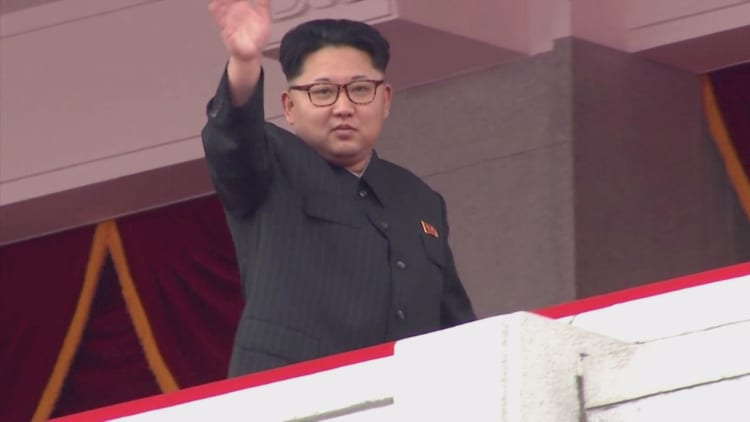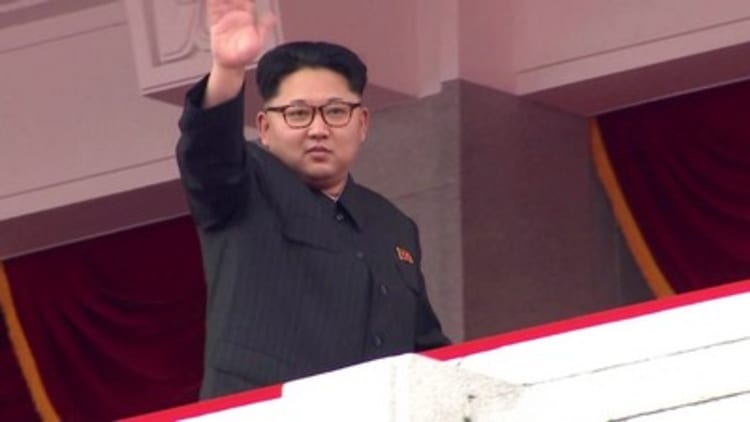
Hedge funds are snapping up insurance against a South Korean default as the nuclear threat from North Korea appears to grow.
"The speed of the move in the cost of protection is one of the sharpest we've witnessed in years," said Larry McDonald of "The Bear Traps Report" newsletter.
As measured by South Korea's five-year-default swap, the cost of protection against the country's inability to pay back loans leaped Tuesday to its highest level since July. As of last August, S&P had an AA credit rating and a stable outlook for South Korea.
South Korea 5-year credit default swap (year-to-date performance)
Source: Reuters
North Korean state media warned Tuesday of a nuclear attack on the United States at any sign of a U.S. pre-emptive strike. The threat came as a U.S. Navy strike group is headed toward the western Pacific.
President Donald Trump tweeted Tuesday morning that a trade deal between the U.S. and China will be more favorable to Beijing if it can put pressure on North Korea. Trump also tweeted that "North Korea is looking for trouble" and that the U.S. is ready to solve the problem without China if necessary.
"The market thinks that North Korea will do something in response to Trump's meeting to provoke the White House," McDonald said. "It's clearly military action risk."

The majority of North Korea's trade is with China, and Beijing recently suspended coal imports from the rogue state amid increased missile tests. Beijing has also clamped down on China's trade with South Korea in retaliation for the U.S. deployment of a missile defense system there.
The South Korea ETF (EWY) was about 0.8 percent lower Tuesday, tracking for its first six-day losing streak since September 2015.
Other market moves showed increasing concern among traders about the region. In addition to the North Korea threat, escalating tensions in Syria and anxiety around the French election in a few weeks have investors on edge.
"All the classic risk-off measures for Asia are screaming," McDonald said.
The yen, a
Euro-yen (year-to-date performance)
Source: FactSet
U.S. Treasury yields also fell, with the near 1.24 percent and the 10-year yield around 2.31 percent. U.S. stocks traded lower.
To be sure, the cost of protection against defaulting South Korean sovereign debt is still lower than it was this time last year.
South Korea 5-year credit default swap (12-month performance)
Source: FactSet
— CNBC's John Melloy, Gina


